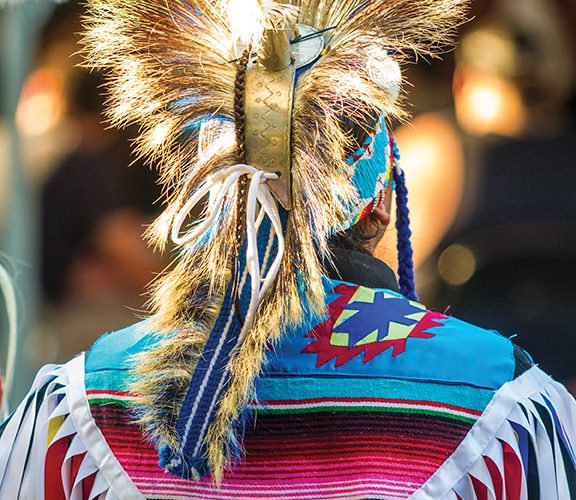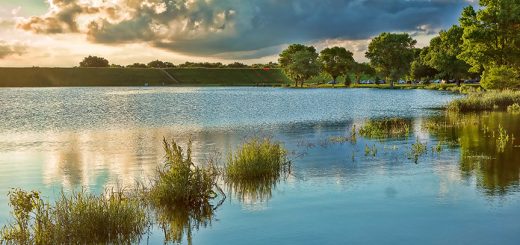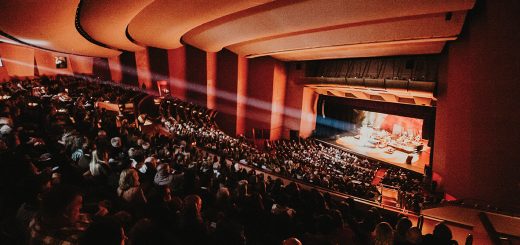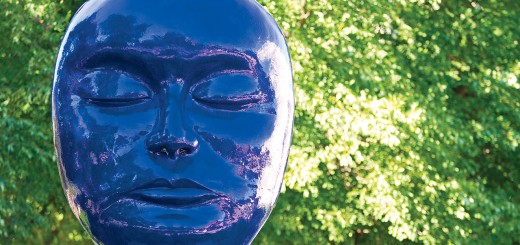Lincoln supports diversity & culture

by Sriyani Tidball
Mary Piper, a Lincoln resident and award-winning author, wrote in her book, The Middle of Everywhere: The World’s Refugees Come to Our Town, “Now we’re one of the top twenty cities in America for new arrivals from abroad. Our supermarkets and schools are bursting with refugees from Russia, Serbia, Croatia, Bosnia, Hungary, and Ethiopia. Our Kurdish, Sudanese, and Somali populations are rapidly increasing. Even as I write this, refugees from Afghanistan, Liberia, and Sierra Leone are coming into our community.”
Currently, Lancaster County is the 18th largest resettlement area for Asian immigrants and refugees in the entire nation, and over half of the state’s refugees live in Lincoln. Refugees from over 40 countries now call Lincoln home, including Syria, Bosnia, Vietnam, Afghanistan, Mexico, Russia, Kurdistan, Sudan, Ukraine, Tajikistan, Myanmar and several others.
Lincoln’s culture has changed dramatically in the past decade. Today in Lincoln, unusual, ethnic vegetables, fruits and foods are mainstream at an ordinary supermarket. When it comes to ethnic restaurants, Lincoln boasts many, amazing options. If it is Indian food you crave, you can choose from a number of different authentic Indian restaurants. If it is Thai, Vietnamese, Chinese, or Ethiopian Lincoln offers many choices.
In the Lincoln Public Schools more than 30 different language groups are represented at the elementary level. And you can learn Spanish at the Hispanic, Community Center, Lakota at the Indian Center, and Chinese, Japanese, Russian or a host of other languages at the University of Nebraska-Lincoln (UNL). Today, when you walk through a department store, you hear people speaking Iraqi, Vietnamese, French or Sudanese.
Thanks to the many vibrant cultural centers around the area, refugees who resettle to Lincoln can blossom and thrive in their new environment and eventually become citizens. These centers also provide a place for immigrants, refugees and bi-cultural people in Lincoln to find comfort in a group setting where their native language and culture is embraced or practiced. For the Lincoln immigrant, these centers can feel like a brief visit into their homeland and a breath of fresh air. For the Lincoln native, they also serve as a chance to learn and experience the cultures of others around the world. Visitors and volunteers are always welcome. Below are some of Lincoln’s most prominent cultural centers.
Established in 1992, the Asian Community and Cultural Center (ACCC) provides a community where Asian-Americans and immigrants join together to share their cultural heritage and promote each other’s well-being. The office, located on North 44th Street, boasts a bilingual staff and, since 2006, serves as a hub for all recently arrived refugees, regardless of national origin. ACCC provides intensive English language classes three times per week, including advanced writing and pronunciation classes, along with weekly citizenship classes. ACCC has support groups for people of all ages in Arabic, Vietnamese, Karen and other languages. Along with teaching English, ACCC also teaches Vietnamese, Chinese, Thai and Korean. The Center hosts public cultural events throughout the year, hosting parties for the Lunar New Year Festival and the Harvest Moon Festival, along with hosting international fish fries and cultural bazaars.
During the ISIS-led genocide of Yazidis in 2016, Nebraska accepted more refugees per capita than any other state. Lincoln’s Yazidi Cultural Center (YCC) on North 27th Street provides a communal space for the Yazidis who resettled to Lincoln in the aftermath of the 2014 genocide. Since then, Lincoln has become home to the largest community of Yazidi refugees in the world. YCC, which is part of a larger national organization called Yazda, is dedicated to providing a home and a caring, loving community to the Yazidi victims of enslavement, violence, kidnapping and displacement. YCC offers classes to teach Yazidis their basic American rights and to prepare them for citizenship. They also provide English and Kurmanji classes in order to integrate refugees into American culture while preserving their own by helping Lincoln’s refugees feel more at home in their new country.
The University of Nebraska-Lincoln has become such a cross-cultural place too as it educates thousands of foreign students from many different nations.
While the Confucius Institute will be closing at UNL, the university will maintain a partnership with Xi’an Jiaotong University in Shaanxi Province, China and will continue to provide opportunities for study in China for Nebraska students.
Some of the more established local minority groups have their own community centers that are not exclusive, but rather inclusive of sharing their differences with others. Volunteers and visitors are always welcomed. Here are some of the more prominent community centers in the city.
The Clyde Malone Community Center (CMCC) is dedicated to strengthening and empowering the African-American community in Lincoln by hosting educational, cultural and advocacy programs for people of all backgrounds. CMCC provides high-quality early childhood education to low-income families. In addition to a leadership academy for ambitious high schoolers, The Center provides an afterschool program that gives children and youth ages five to 13 a range of supervised activities designed to encourage learning and development. In addition, CMCC provides services for the elderly, helping them enhance their daily lives and increase their independence. The Center is always accepting volunteers to help in a variety of activities from supervising preschool to helping out at special events.
El Centro de la Americas, founded in 1982, has, for over 35 years, provided education, family support, youth empowerment, health and help navigating resources for Lincoln’s Hispanic community. El Centro offers GED classes in Spanish for anyone aged 17 and up, as well as citizenship tutoring and one-on-one computer literacy tutoring. Additionally, El Centro partners with Lincoln Literacy to provide English classes for non-English speakers in order to improve their literacy and employability. El Centro hosts weekly Zoomba classes for friends and families to enjoy dancing together, sponsors women’s support groups and throws a variety of Latino cultural events and fundraisers throughout the year. Called Wine! Chocolate! Tango!, this annual fundraiser at the Cornhusker Hotel invites people to experience Latino culture with homemade food, wine, traditional dancing and heaps of delicious, artisan chocolate.
The Indian Center, Inc. was formed in 1969 to provide services to Nebraska’s Native Americans and other Lincoln residents in the areas of food commodities, housing, culture, employment and health.
The center, known for its generosity, offers free lunch for anyone in need who comes through the front door. Its Senior Center, open Monday through Friday from 8 a.m. to 2 p.m., highlights specific programs for seniors. Special projects tailored for youth empowerment, include Indian child welfare, Native American Junior Achievement and summer youth programs. Other activities include an art exhibit, and pow-wows in Lincoln.
Every summer the center hosts a fabulous pow-wow where native families come from all over the region to enjoy a celebration that is very important to their heritage. Non-native folks are welcomed to join.
The center welcomes volunteers in its employment/training programs to help locate jobs in the community for the unemployed. WIA Work Investment Act and Lakota Language classes are offered weekly. For more information visit indiancenterinc.org.
Though Lincoln is small, it harbors an immense wealth of cultures, peoples and traditions locally and from all over the world. It’s fair to say that in order to experience Lincoln fully, one must engage in understanding the myriad of people groups that call it home. Taking a day to visit one (or more) of these cultural centers is a perfect way to start.




Recent Comments